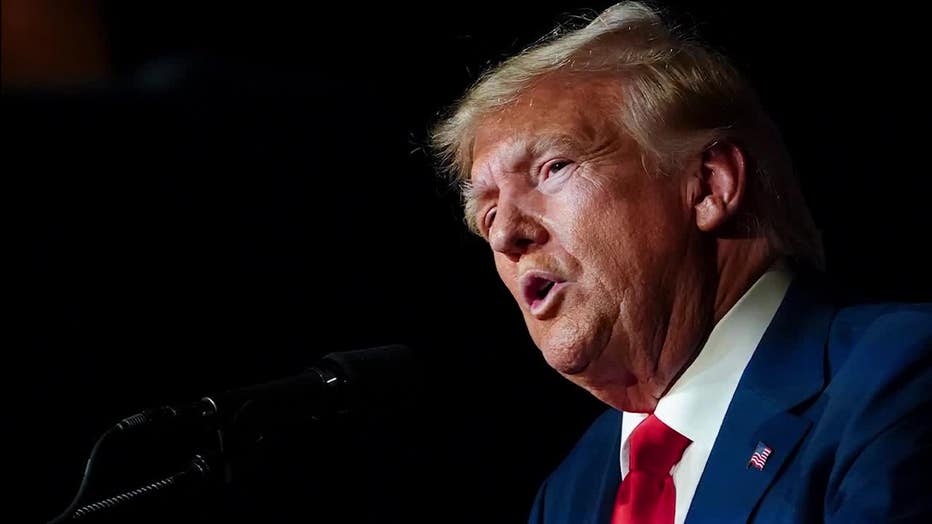Trump to be sentenced in hush money case next week

Trump won?t face jail in hush money case
In an extraordinary turn, a judge has set President-elect Donald Trump?s sentencing in his hush money case for Jan. 10 ? little over a week before he?s due to return to the White House. But the judge is indicating that Trump won't be jailed.
NEW YORK - A judge scheduled the sentencing of incumbent Pres. Donald Trump in his hush money criminal conviction for Friday, Jan. 10.
The sentencing would come just 10 days before his Jan. 20 inauguration, but Judge Juan M. Merchan promised no jail time in his written decision.

Donald Trump addresses a crowd at his Mar-a-Lago estate regarding the findings in his Miami case over alleged mishandling of classified documents. April 4, 2023.
Trump has been fighting for months to reverse his May 30 conviction on 34 counts of falsifying business records. Prosecutors said he fudged the documents to conceal a $130,000 payment to porn actor Stormy Daniels to suppress her claim that they had sex a decade earlier, which Trump denies.
Last month, a New York judge rejected Trump’s efforts to toss the case because of the Supreme Court’s ruling. Prosecutors have indicated they would be open to delaying a sentencing until Trump leaves the White House, but say the sentence should stand.
Trump’s hush money conviction was in state court, meaning a presidential pardon -- issued by Biden or himself when he takes office — would not apply to the case, as presidential pardons only apply to federal crimes.
Trump takes office Jan. 20 as the first former president to be convicted of a crime and the first convicted criminal to be elected to the office.

President-elect Trump holds first press conference
President-elect Donald Trump held his first post-election news conference on Monday, touching on a number of issues ranging from the crisis in the Middle East to the controversy surrounding one of his cabinet picks. FOX 5's Sharon Crowley has the story.
What's at the center of the hush money conviction?
The case centered on how Trump accounted for reimbursing his personal attorney for the Daniels payment.
The lawyer, Michael Cohen, fronted the money. He later recouped it through a series of payments that Trump’s company logged as legal expenses. Trump, by then in the White House, signed most of the checks himself.
Prosecutors said the designation was meant to cloak the true purpose of the payments and help cover up a broader effort to keep voters from hearing unflattering claims about the Republican during his first campaign.
Trump said that Cohen was legitimately paid for legal services, and that Daniels’ story was suppressed to avoid embarrassing Trump’s family, not to influence the electorate.
Trump was a private citizen — campaigning for president, but neither elected nor sworn in — when Cohen paid Daniels in October 2016. He was president when Cohen was reimbursed, and Cohen testified that they discussed the repayment arrangement in the Oval Office.
Trump, a Republican, has decried the verdict as the "rigged, disgraceful" result of a "witch hunt" pursued by Manhattan District Attorney Alvin Bragg, a Democrat.
The Associated Press contributed to this report.

